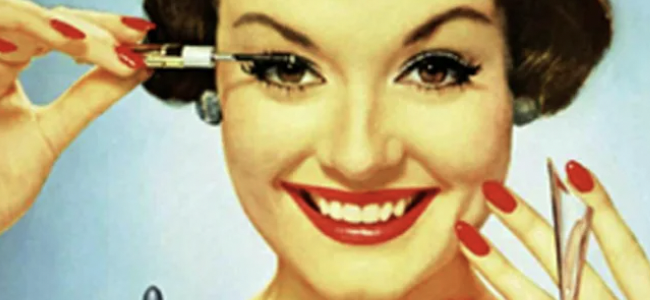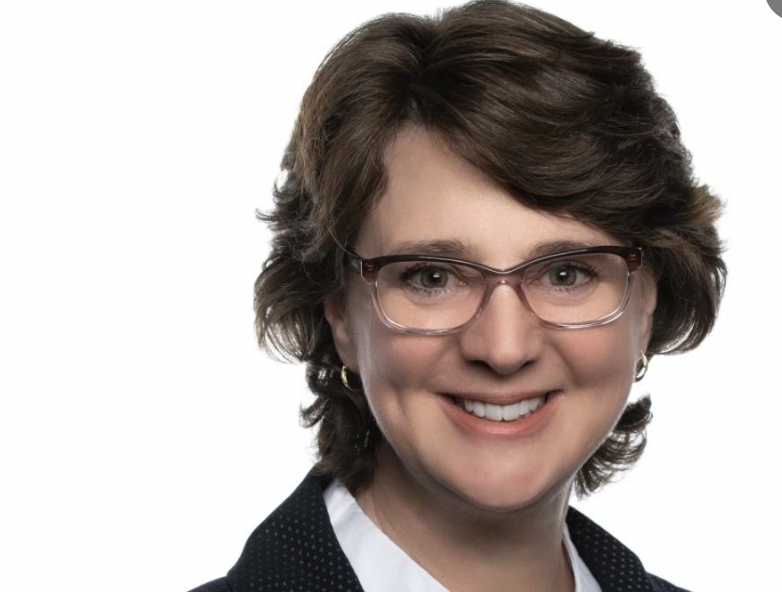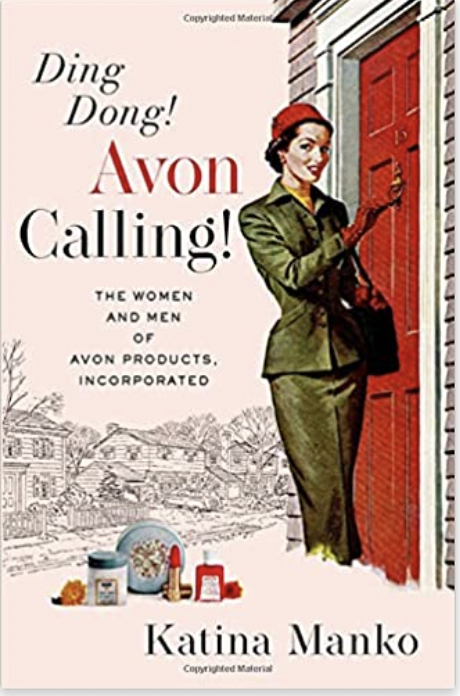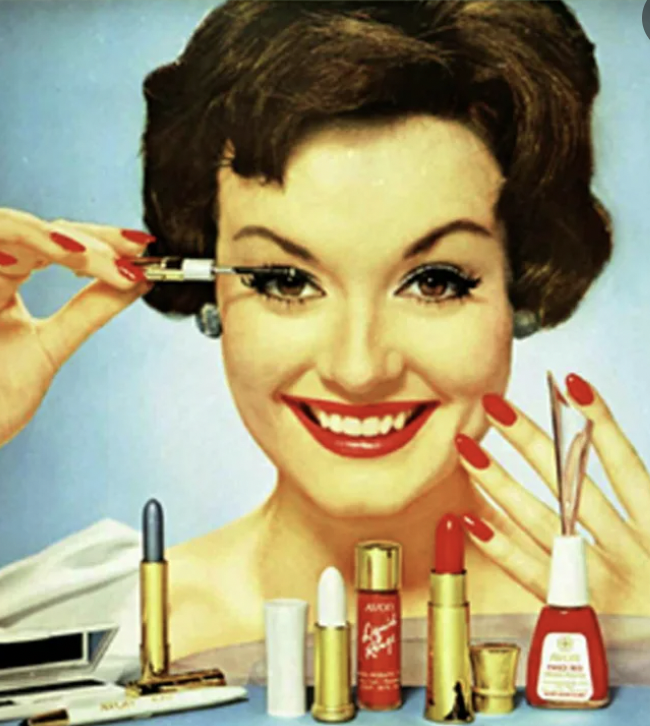
Kitchen-table entrepreneurial venture



In the Twentieth century the Avon Lady acquired iconic status in American culture, in the1890s David McConnell, a young travelling book salesman working door-to-door in the eastern US tried out a new method of direct sales. After branching out into perfumes, began recruiting women to market the products in their own communities and cultivate a respectable image, building on their rural social networks to sell the products of what he called the Californian Perfume Company – a new phenomenon.
Eventually McConnell’s innovations became one of America’s largest cosmetics companies, known from 1939 as Avon and emerging as a cultural icon, the demurely glamorous Avon Lady .
Katina Manko traces the company’s development with a gradual push to middle class women’s economic independence.
The growth of the business powered by self-employed female sales force critically chosen by Lela Eastman, a divorced mother promoted from sales, earning in 1928 a princely sum of $140a month. “ I went on the road when they said they wanted me. If I had to crawl I would have gone”. Few saleswomen were promoted to recruiters and most reported minimal sales before quitting. Avon rode high for much of 20th century ditching earlier household product lines to harness the growing popularity of colour cosmetics branching into urban and suburban markets. In 1982, it sold $3million of its products.
The company also paved way for Tupperware parties, multi-level marketing models like those of Herbalife and Amway, but Avon remained loyal to door-to-door models until the onset ecommerce.
Avon treaded a delicate cultural line especially in the pre-war years.
Avon ladies combined non-nonsense business with family responsibilities.
Saleswomen were addressed with evangelical exhortations to self-reliance. ”All success lies within one’s self and not in external conditions.
“ said the companies 1915 instructions for general agents. Avon took until 1999 to appoint a female chief executive.
Katina Monko, an academic who has worked for Avon as an archive assistant. Avon now owned by Brazilian Natura group provides meticulous chronicle of Avon’s development.
In 1972, a female Avon executive named Patricia Neighbors opened a meeting of male regional mangers by saying “ How wonderful they looked’ complimenting on their suits.
Avon tells the story of a direct- sales company that was both a giant in its industry and a kitchen-table entrepreneurial venture. Ding Dong1 Avon Calling” sales ladies brought door-to-door sales of makeup, perfume and other products to American women beginning in 1886. Working for the company enabled women to earn money on the side and even become financially independent in a respectable profession while selling Avon’s wares to friends, family and neighbourhood networks.
Ding Dong! Avon Calling is also the story of women and entrepreneurship, and of an innovative largely managerd by men that empowered women to exploit networks of other women and other community for profit. Founded in the 19th century, Avon grew into a massive international direct sales company in which millions of ambassadors of beauty sat in their customer’s living room with a sample case , catalogue and is conversational sales pitch. Avon was unique in American business history for its reliance on woman as representatives, offering them a chance to have business of their own. Being an Avon lady avoided the stigma that was often attached to middle-class women’s work outside the home and enabled women to maintain the delicate balance of work and family.
Avon is more than perfumes and toiletries, but a brand built on woman, knocking on doors and chatting with neighbors thriving for more than a century, simple technique of woman directly selling beauty tp women at home.
